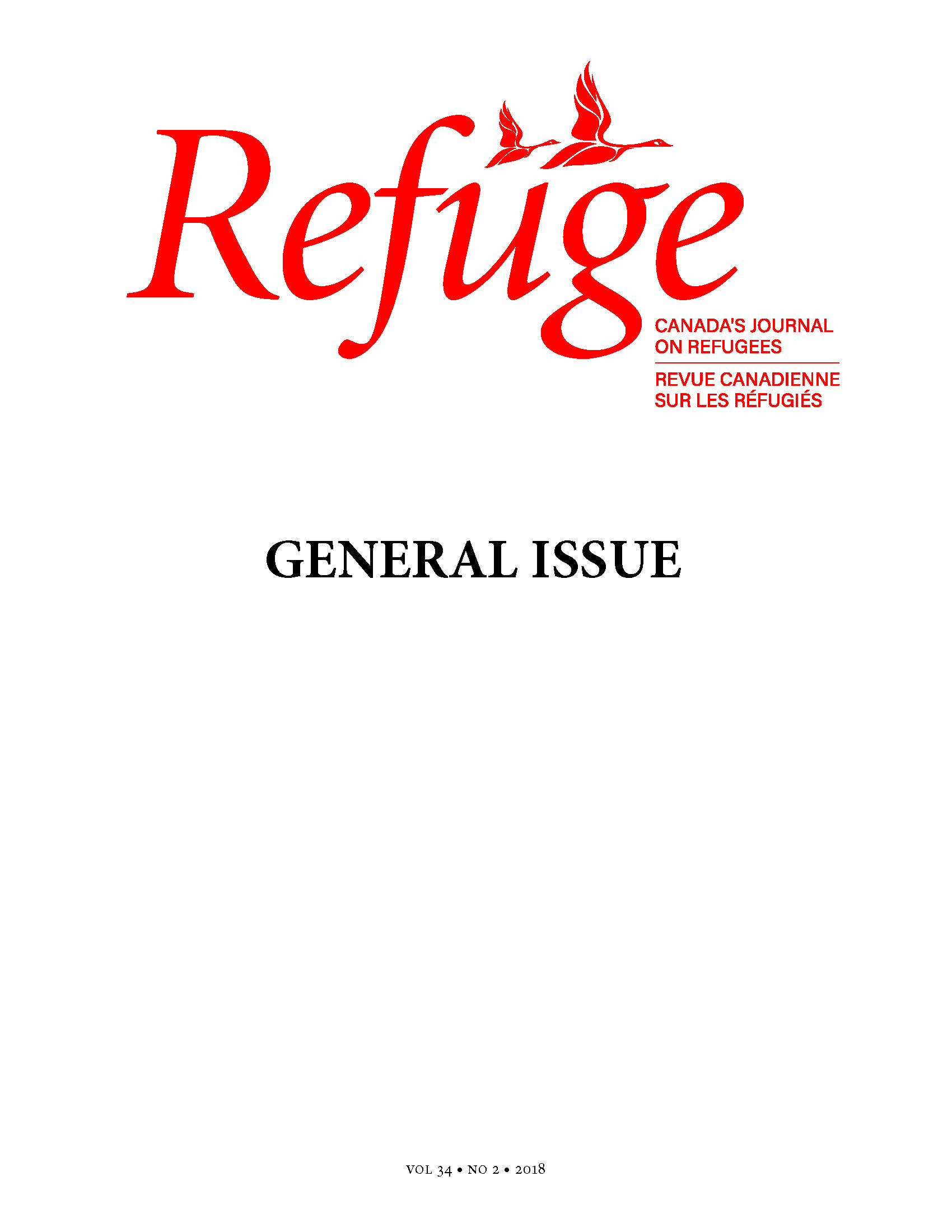Examining the Intersection of Race, Gender, Class, and Age on Post-Secondary Education and Career Trajectories of Refugees
DOI:
https://doi.org/10.7202/1055582arKeywords:
Canada, intersectionality, gender, racialization, sexism, post-secondary education, pilot program, career and education support program, forced migration, refugeesAbstract
This study examines the role of demographics on education and career trajectories of refugees in Canada from an intersectional perspective. It implemented a 14-week unique educational program that was completed by a total of 41 refugees, over two cohorts with the goal to overcome barriers, bridge gaps and facilitate their transition into higher education. The data collected using semi-structured interview guide was analyzed using a constant comparative method. The findings suggest that a supportive educational model that promotes safety, sense of belonging and empowerment are critical to combat the structural racism, sexism and other discriminatory factors in accessing higher education.
Metrics
Downloads
Additional Files
Published
How to Cite
Issue
Section
License
Copyright (c) 2018 Jaswant Kaur Bajwa, Mulugeta Abai, Sean Kidd, Sidonia Couto, Aytak Akbari-Dibavar, Kwame McKenzie

This work is licensed under a Creative Commons Attribution-NonCommercial 4.0 International License.
Refuge authors retain the copyright over their work, and license it to the general public under the Creative Commons Attribution-Non Commercial License International (CC BY-NC 4.0). This license allows for non-commercial use, reproduction and adaption of the material in any medium or format, with proper attribution. For general information on Creative Commons licences, visit the Creative Commons site. For the CC BY-NC 4.0 license, review the human readable summary.







